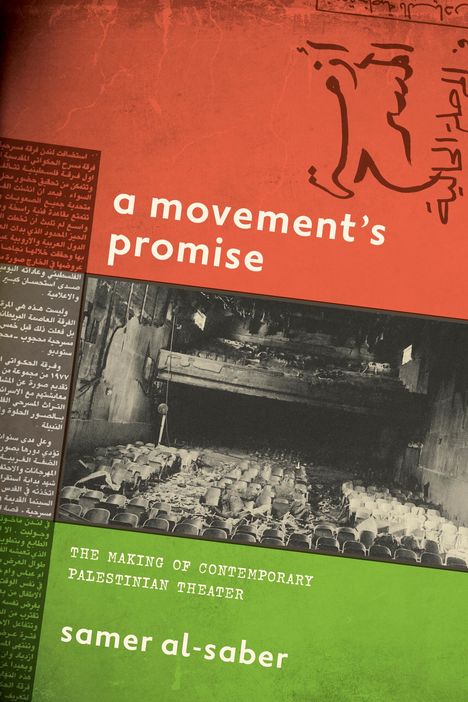Samer Al-Saber: A Movement's Promise, Kartoniert / Broschiert
A Movement's Promise
- The Making of Contemporary Palestinian Theater
(soweit verfügbar beim Lieferanten)
- Verlag:
- Stanford University Press, 08/2025
- Einband:
- Kartoniert / Broschiert
- Sprache:
- Englisch
- ISBN-13:
- 9781503643277
- Artikelnummer:
- 12049591
- Umfang:
- 328 Seiten
- Gewicht:
- 499 g
- Maße:
- 226 x 152 mm
- Stärke:
- 20 mm
- Erscheinungstermin:
- 26.8.2025
- Hinweis
-
Achtung: Artikel ist nicht in deutscher Sprache!
Weitere Ausgaben von A Movement's Promise |
Preis |
|---|---|
| Buch, Gebunden, Englisch | EUR 164,81* |
Klappentext
"Starting in the 1970s, Palestinian theater flourished as part of a Palestinian cultural spring. In the absence of local radio, television, and uncensored journalism, theater production became the leading form of artistic expression, and Palestinian theater artists self-identified as a movement. Although resistance was not their sole function, these theater makers contributed to an active cultural resistance front. With this book, Samer Al-Saber tells the story of the Palestinian Theater Movement over nearly three decades, as they created plays and productions that articulated versions of Palestinian identity, critiqued social norms, celebrated and extended Palestinian cultural values, and challenged the power disparity created by the Occupation. The struggles between Palestinian theater artists and Israeli authorities form the central relationships in this history. Al-Saber juxtaposes the agency of Palestinian theater artists, in their determination to perform against immense challenges, with the power of Israeli authorities to grant or deny permission to theatrical productions. The legal structure of institutionalized censorship prevented Palestinian artists from expressing their chosen message, and the theater movement's search for permission to perform illuminates the disparity in power between the occupier and the occupied. In writing the first history of the Palestinian Theater Movement, Al-Saber amplifies necessary voices in this Palestinian cultural history, told from below"-- Provided by publisher.

